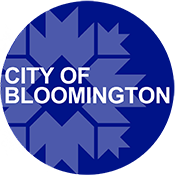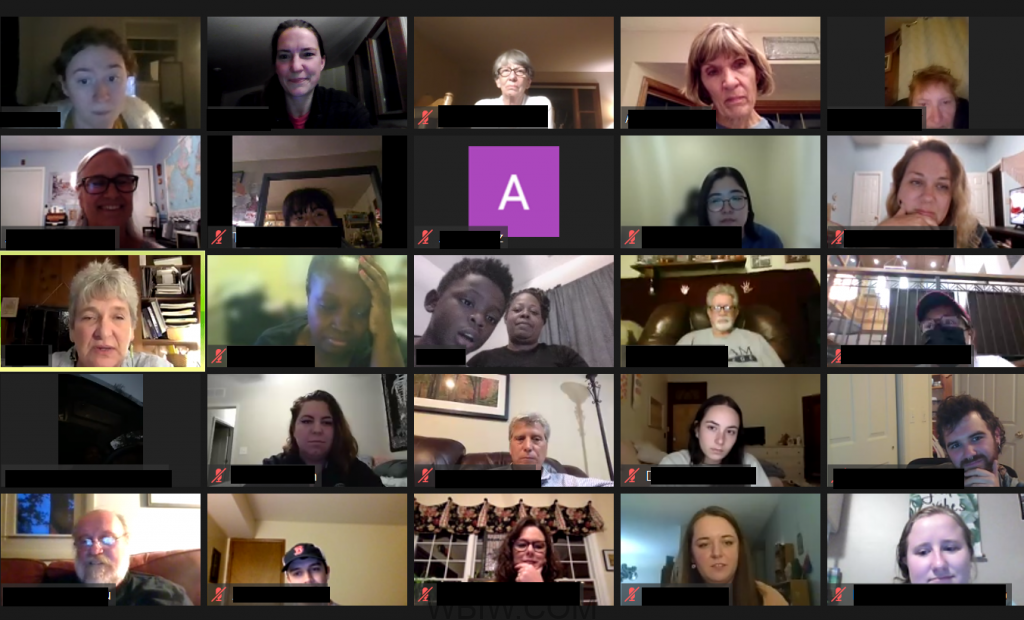
BLOOMINGTON – The City of Bloomington Information & Technology Services Department (ITS) announces the 2021 Digital Equity Grants awards to support Bloomington-based nonprofit organization efforts to bridge the digital divide and increase digital resources for residents.
Now in its second year, this grant program is funded through Mayor John Hamilton’s Recover Forward initiative to help Bloomington recover from the pandemic and economic collapse, and advance racial, economic, and climate justice.

“The 2020 Digital Equity Survey confirmed that too many Bloomingtonians lack internet access and internet-enabled devices, which are crucial to participating fully and succeeding in the contemporary world,” said Mayor John Hamilton. “We are glad to partner with these nonprofits to decrease the digital disparities their client’s experience.”
The Digital Equity Grants program funded nine area nonprofits a total of $50,000 in funds this year, an increase from $35,000 awarded to six nonprofits in 2020. This year’s recipients, programs supported, and grant amounts follow:
- Area 10 Agency on Aging, Creating Digital Literacy Opportunities and Tackling Social Isolation in the World of COVID, $4,700
- Artisan Alley, Wi-Fi Mill, $4,000
- Courage to Change Sober Living, Technology Access/Instruction for Courage to Change Sober Living Residents, $6,800
- Farmer House Museum/TechHeroes, Bloomington Stories and Farmer House Museum Stories, $5,400
- Hotels for Homeless, Long Term Access to Technology and Skill Building for Those Experiencing Homelessness, $7,600
- Monroe County Public Library, Cameras for Remote/Hybrid Public Meeting Rooms, $1,000
- Monroe County United Ministries (MCUM), Closing the Service and Referral Gap for MCUM Clients, $7,000
- New Leaf New Life, Digital Efficiency, $4,200
- South Central Community Action Program, Digital Action Plan for Thriving Connections Families, $9,300

“We were excited to see a broader applicant pool, comprising organizations that grapple with the challenges identified in our digital equity strategic plan,” said Information and Technology Services Director Rick Dietz. “The Bloomington nonprofit community is really stepping up to help the City address these challenges.”
Courage to Change Sober Living will use its grant to pay for internet in its four sober living residences and to buy three laptop computers that staff will use to assist residents with accessing social services, applying for jobs, attending recovery meetings via Zoom, setting up email accounts, keeping current on fees, and feeling comfortable accessing online services. The organization provides safe, affordable, peer- and staff-supported, sober living transitional housing to those experiencing substance use disorder in Monroe County.

“Our residents are part of the underserved community who are playing catch-up in terms of access to the internet and computers, lacking the familiarity and digital skills many of us take for granted,” said Bobby Overman, Courage to Change grant writer and board treasurer. “Having internet at our residences is also important as otherwise our residents have to use the minutes on their phones and that can be expensive. The digital divide became really apparent to us during that time when access to computers that our residents would normally use–at the public library, for example–was no longer available. This grant will mitigate this digital equity gap while making a positive impact on our residents.”

The Digital Equity Grants program sought proposals from nonprofits for projects that build capacity in the community to address digital equity challenges, in the following ways:
- Facilitate access to broadband services
- Increase access to effective computing devices to effectively use the internet
- Cultivate the knowledge, familiarity, and digital skills needed to secure the benefits of the internet and digital technology
- Convey skills for using the internet safely, securely, and confidently to engage in digital life
- Mitigate community digital equity gaps identified in the City’s digital equity survey, the results of which are available here.
“Accessing up-to-date technology and developing the skills to use it are barriers to both employment and education that people in poverty face,” explained a participant in South Central Community Action Program’s Thriving Connections, a community-building model of poverty alleviation that matches participants (‘Captains’) and their families with volunteer ‘Allies’ from the community. “I personally struggle in this area because I have such a large family,” the participant continued. “Access to an additional device in the home would allow multiple people to accomplish their work and school tasks at the same time.”
More information is available at https://bloomington.in.gov/digital-equity.



